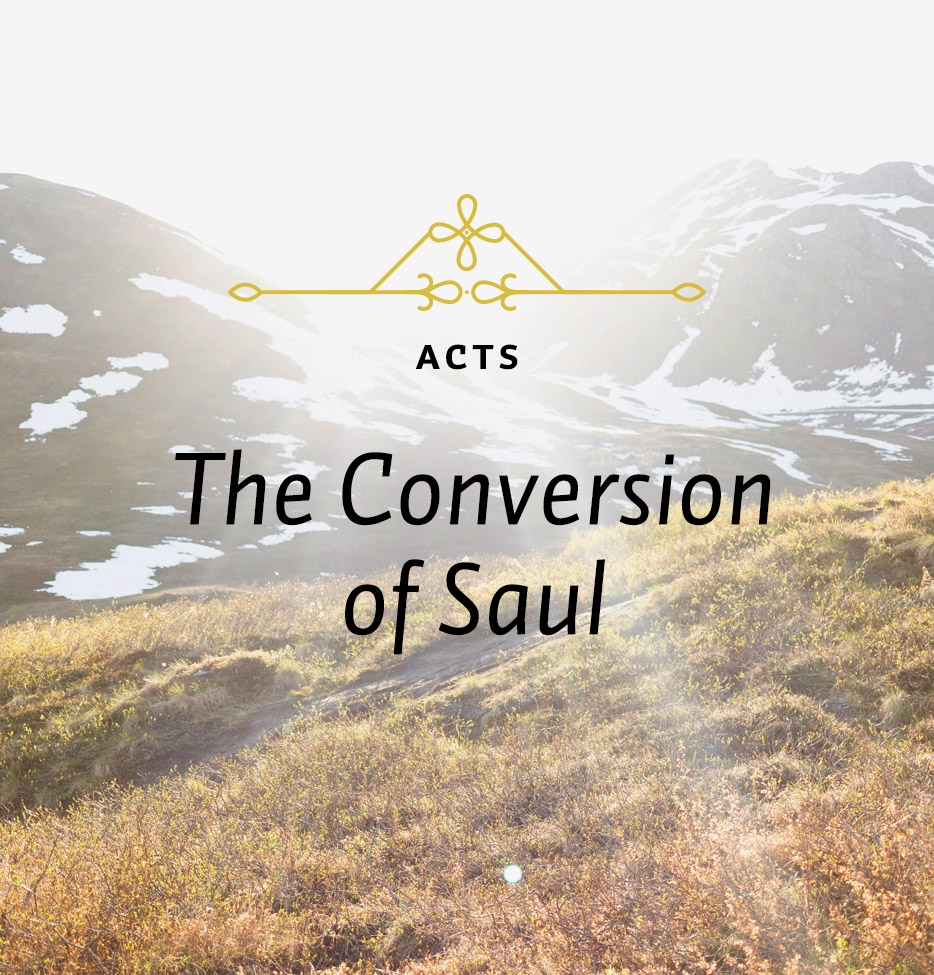The ninth chapter of Acts contains Luke’s account of the conversion of his friend Saul. But the story is told twice more, once in chapter 22 and again in chapter 26. These later accounts are not mere summaries of Saul’s conversion. They are full accounts, each with its own particular emphasis. It is significant in so short a book—yet one attempting to cover the large story of the expansion of Christianity from its small beginnings in Jerusalem shortly after the death and resurrection of Jesus Christ to a religion that filled the whole empire—that the tale of one man’s conversion should be so greatly emphasized.
Striking, but not surprising. For more than any other individual in these early years, Saul of Tarsus picked up the banner of the cross of Jesus Christ and carried it throughout the Roman Empire. Obviously and rightly, Luke considered Saul’s conversion to be a watershed event. If the Apostle Paul was not converted as the ninth chapter of Acts says he was and as he himself declares in his own recorded testimonies, both before the Jews and the Gentiles, then Christianity loses one of its two most important bulwarks. Moreover, it loses its most able theologian, and Christianity is weakened proportionately.
Was Paul converted as the Bible says he was? One important factor in the answer is the account we are to study now.
Saul has already been introduced to us at the beginning of chapter 8, which is really the end of the story of the stoning of Stephen, but it is time to look at him in greater detail. What can we say about this man? One thing is that he had received a remarkable education.
Sometimes when I am talking to young people who are thinking about Christian work and are wondering whether taking time to get an education is worthwhile, I ask them, “Who was the man who was most used of God in the Old Testament?” The answer to that question, obviously, is Moses. So I say, “Did he have an education or not?” The answer is that he did.
“What kind of an education did he have?” He had the best education that it was possible to get in his day, and it was a secular education. True, he had been trained along spiritual lines in his home; he knew the Lord. When the time came in his life when he was confronted with a choice between the pleasures, wisdom, prestige and power of Egypt, he chose rather to identify with the people of God, even though that obviously was going to involve great self-denial and suffering (cf. Heb. 11:24-28). He was a spiritual man, but his formal education was nevertheless secular. Stephen, as recorded in the last chapter, said that he was “educated in all of the wisdom of the Egyptians” (Acts 7:22).
Then I ask, “Who was the man most used of God in the New Testament, apart from Jesus Christ?” The answer undoubtedly is the Apostle Paul. “How was he educated?” The answer is that he had the best possible education a person in his time could have. “What kind of an education was it?” It also was a secular education—overtly secular in his home town of Tarsus, but also secular in Jerusalem. In Jerusalem Saul received what in that day would have been called a religious education. He had studied under Gamaliel. This was like going to Harvard University and registering in the religions department. It was a thorough study of religion, and Paul did learn the traditions of Israel. But it was not a truly spiritual education. Paul’s heart was not yet touched by God.






